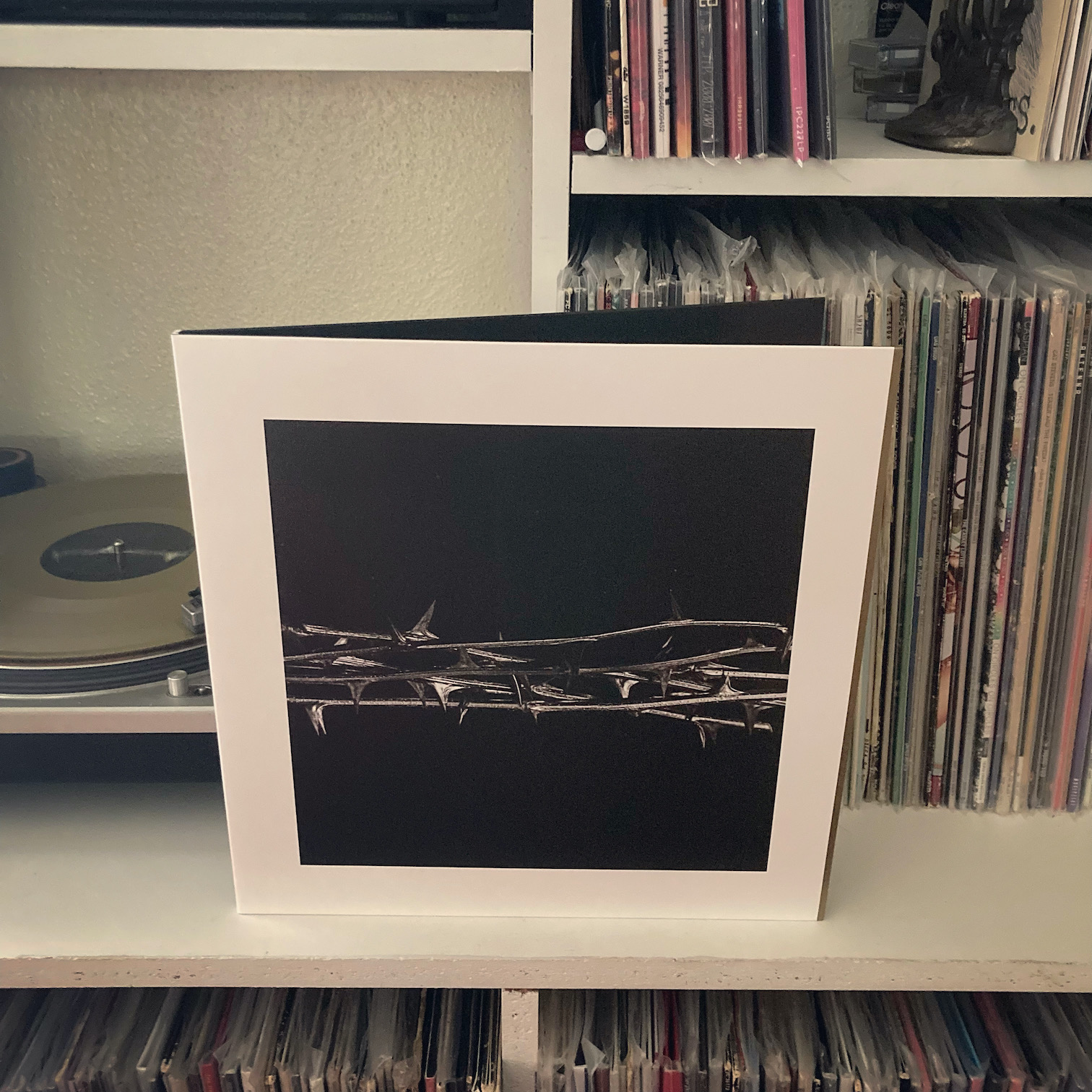
Media is an interesting thing.
Take for instance De Doorn (Flemish for “The Thorn”) the seventh album from Belgian sludge metallurgists Amenra. It is by all respects a grave and serious album: these songs were written as part of a project commissioned by local government officials as a commemoration of the one-hundredth anniversary of the First World War, a presence still uniquely felt in their region, dotted with bunkers, trenches, and the lingering loss of ancestors. It is a poignant look at grief, mourning, and the scars of war.
And yet, I discovered this album when professional wrestler Malakai Black used a track as his entrance music.
As odd as an introduction as that was, it makes sense. Black, from the Netherlands himself, treats his own art form with a gravity that is unique inside a business filled with carnies and clowns. And as a lifelong metal fan himself, it’s no surprise that he would choose something than the typical butt rock fare that many wrestlers make their entrance to.
I doubt I’m the only person who went from AEW Dynamite that night and looked up Amenra, and I doubt I’m the only person who realized just how rich and harrowing this album is.
To be clear, this is not an album for casual listening. In the original project, Indonesian artist Toni Kanwa Adekukusmah carved sculptures out of trees that citizens were invited to mark with signs of grief—names, notes, drawings. Then, these sculptures were lit ablaze while these songs were performed in an act of catharsis. “Catharsis” is a word that gets thrown around a lot in critique of heavy music, but this is one album where the full weight of the word is utilized, even without the communal grieving ritual.
The vocals, entirely in Flemish (thankfully translated on the lyric sheet), shift from spoken word to mournful clean vocals to some of the most animalistic screams I’ve ever heard—which make complete sense with the subject matter. And on this album, frontman Colin H. van Eackhout is joined by Oathbreaker’s Caro Tanghe, an expert in catharsis in her own right. The lyrics are minimalist, but profound. In opener “Ogentroost” (Eyebright) he Eackhout screams, “heartbeat / beating drums / called upon / it has been done. Hallowed ground, a dying son / bodies sprawled / and all is done. I was called upon.” In “De Evenmens” (The Everman), he issues a plaintive condemnation of the futility of war: “I saw you in the eyes of my fellow man / My heart my home, I have let you down.” Album closer “Voor Immer” (Forever) rises from the charred remains of the burning totems: “Forever on my own / for our sins we must atone / have faith in happiness beyond / have faith, there is happiness beyond . . . lingering love / eternal / coming and going / lingering love / rejoice.”
Then there’s the instrumental side of things. Even for sludge metal, the band is patient and foreboding. They shift between quiet, brooding atmospheric passages and crushing walls of noise as fiery as the burning sculptures, often taking minutes at a time between each. It takes two and a half minutes for the guitar line of “Ogentroost” to break through the ambient fog, and another two minutes for it to kick on the distortion and the drums and bass to join in. “De Dood in Bloei” (Death in Bloom) spends its entire four-and-a-half-minute runtime in a wash of guitar reverb and spoken word, teasing for the catharsis that would come on “De Evenmens.” “De Evenmens” is the most straightforward and immediate song on the album, kicking down the door with a heavy riff and a melodic bridge that’s practically post rock. But with an eight-minute run time, it isn’t exactly radio-friendly.
Even at their most blistering moments, the composition is incredibly simple. The guitar lines are often repeated, single-note melodies, but they land harder than even the most technical riffs. “Ogentroost” is perhaps the best example of this, but “Het Gloren” (The Dawning), which uses only two or three progressions throughout its eleven and a half minutes.
The entire album takes only forty-seven minutes, but it takes a serious toll. The closing moments of “Voor Immer” are consumed with overdriven noise as if the tape itself were burning with the structures, before collapsing into a quiet guitar line, and the silence at the end of the album is almost as important a part of the record as the music itself. It is an absolutely devastating album that reckons with the most devastating types of loss we as a species experience. And in a world that is racked with grief yet makes no time to lament, this is record is as necessary as it is heavy.
And in a weird way, it makes me grateful to be a pro wrestling fan.